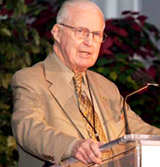
Uruguay: In Every Kiss a Revolution
Source: The New Internationalist
With fireworks, music and dancing ‘nuns’, on Friday 25 September Montevideo was host to the March for Diversity, Uruguay’s equivalent of Gay Pride.
Part of a year long-programme of activities organized by the Uruguayan Government called Actúa Montevideo: Más igualdad, más diversidad (Act Montevideo: more equality, more diversity), it took place in September, a month that this small but open-minded country has dedicated to sexual diversity for the second year running.



